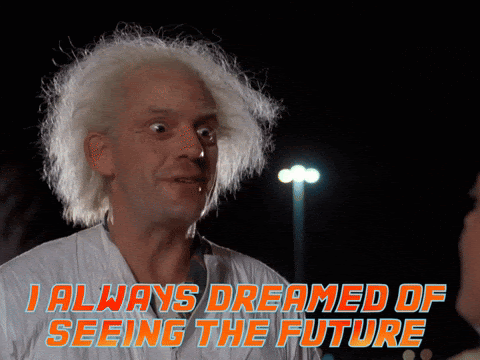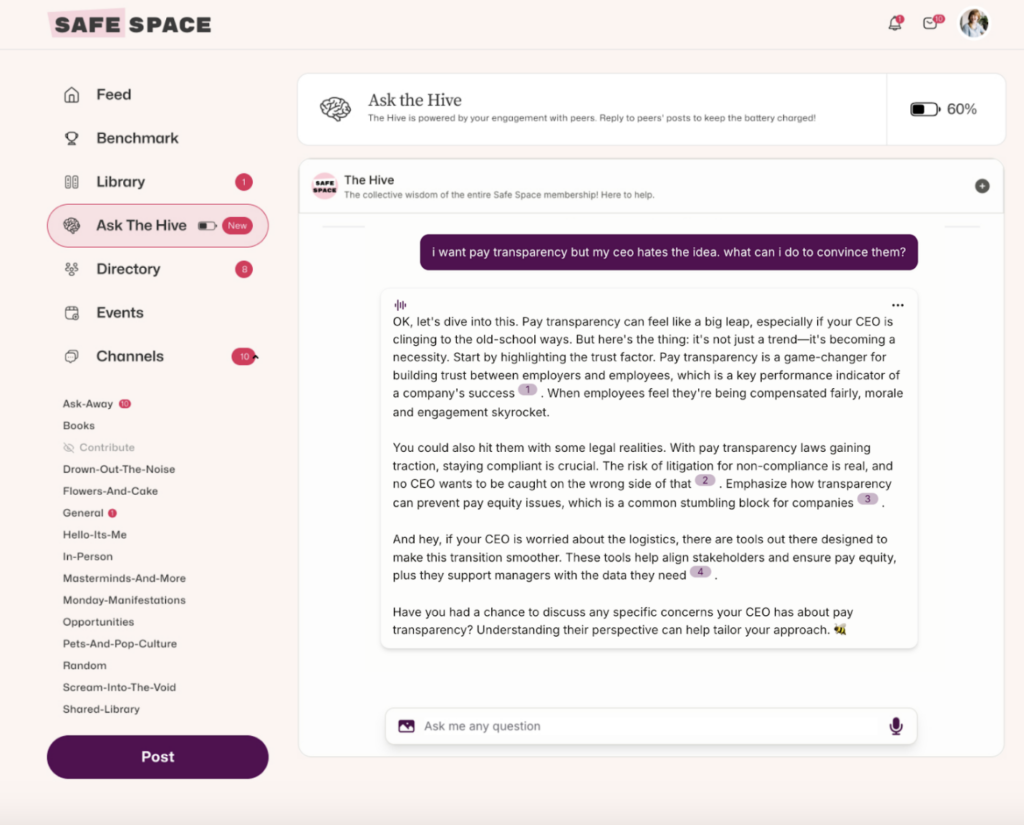WHAT A LOADED QUESTION!!!!!
If you were to ask people, “What does HR actually do?” you’d likely get a different answer from everyone.
Maybe they’d say:
“HR’s role is to hire and fire!”
“It’s about developing people!”
“It’s just paperwork and compliance!”
OR my favorite…
“HR is just there to protect the company!”
True story: I’ve heard ALL of those used when describing what HR’s role is.
And the real answer is: HR is all those things and more!
To understand what our job actually is – let’s take a look at how HR started, where we stand today and where we may go in the future. This evolution will give us a lot of insight on why there tends to be confusion when it comes to HR’s role.
👻 You’re about to be visited by the ghost of HR’s past…
Past:
💡Did you know that the first prototype of an HR department was in the early 1900s?
The National Cash Register Co. started a department called personnel management to deal with the growing number of employee walk outs, strikes, grievances, and new employee training laws.
Why were workers so fed up? Well, the Industrial Revolution had made significant impacts on working conditions and working relationships.
Before the Industrial Revolution American labor was mostly agricultural. Meaning the workers were on either their own farms or nearby farms of a neighbor or friend. Meaning the relationship between “employer” and “employee” was more personalized and on a smaller scale.
JOIN 150K+ HR LEADERS
Get insights, learnings, and advice on how to build companies and cultures that people actually love.
No spam. Unsubscribe any time.
But when the Industrial Revolution started more work shifted to be done in factories. And thus began the social separation between employer / employee. Some factory workers might never meet the owners, which was very different from personalized farm experience. Not to mention, factories were also dangerous – much more dangerous than a farm.
Americans who were fed up with unfair labor practices and unsafe working environments aligned themselves with the progressive movement. The progressive movement wanted to expose these working conditions and the various problems that come from rapid industrialization and make change through legislation.
And so began a period of time where legislation was being fought for, while the economy was going through changes and America was entering world wars. I don’t have enough space in this newsletter to go into the various laws but a milestone throughout this time is the passing of the Fair Labor and Standards Act of 1938.
This act established critical protections for workers like a federal minimum wage, restricting child labor and the introduction of overtime for hours worked over 40 in a week.
Personnel teams (soon to be known as HR) at that time were focused on:
- Compliance
- Workplace safety
- Labor practices
And let’s not forget about the fact that while all this change is happening the US enters two World Wars that created demand for military personnel and labor to support the efforts.
The next major shift we observe is around the Civil Rights Act of 1964 and the Equal Employment Opportunity Act of 1972. Those laws introduced specific obligations for employers such as:
- Prohibition of discrimination in hiring, promotions or employment decisions based on sex, gender, race, religion, national origin
- Preventing and addressing harassment in the workplace
- Fair recruitment process
- Recording keeping and reporting requirements
There became real legal ramifications around what a company was doing and how they were treating their talent. The work shifted from being solely about administrative tasks like payroll and record keeping to helping organizations strategize around their people.
By the 1980s HR became the more widely used title for the function.
Now 1980s – today we saw some more minor changes in HR from bubbles around leave, safety, performance, feedback, culture, and pay.
The tech bubble needs its own newsletter about how it shaped corporate cultures and benefits but that’s for another day.
I don’t want you to think i’m skipping major moments but a gal only has so much space in one newsletter!
So, that brings me to the present.
👻 Here comes the ghost of HR’s present…
Present:
WE HERE. The present. What a time to be alive!
The role of HR/People/Culture – whatever title you want to use is VAST.
Some days it feels like we’re undergoing a transformation of sorts.
I shall emerge a butterfly. JK IDK why I said that.
The introduction of new technology paired with the changing workforce expectations has put us at an interesting intersection.
And companies are looking to HR to be a strategic partner that can:
- Anticipate workplace trends
- Handle and effectively manage disruptions
- Foster agile teams who can thrive in change
- Effective leverage new technologies
All while we’ve seen high levels of burnout in HR with many folks shifting to fractional work or leaving the space entirely. Not to mention the constant attack on our work specifically in the DEI area.
See why I said transformation!?
One of the things I think HR leaders are struggling with the most is if the job is not defined properly it can grow to mean everything. And that’s simply not feasible.
✏️So I have two homework assignments for you today:
1. Find your job description for your current role. Read it. Is it reflective of the work you are currently doing? If not, what would you add? Write it down and start thinking about having a discussion with your manager about what an expanded scope of work means.
2. Think about your HR leader profile. What time of HR leader are you? Could you be:
- The Hypergrowth Type- you love growth and scale and thrive in environments where you can focus on enabling and empowering that growth through recruiting.
- The Change Agent – you love transformation and love disruption and growth and leading things like organizational change, acquisitions, mergers, shifts in culture for example.
- The Strategist – your superpower is aligning HR’s goals with the organization’s goals. You enjoy workforce planning, aligning culture with vision and succession planning.
- The Compliance Pro: you know policies and regulations unlike anyone else and enjoy making sure organizations adhere to laws to minimize legal risk.
- The Employee Champion: your priorities are engagement and employee wellbeing. You thrive in environments where you can directly work on building a positive employee experience.
I think I should do a whole newsletter on these profiles?? If yes, reply to this email. 🙂
And finally – let’s hop in the Delorean.
👻 Our final ghost is here, the ghost of HR’s future…
Future:

Ahhh the future… something I think about probably far too much.
I don’t have a crystal ball otherwise I’d be asking it for lotto numbers or something but here’s what I think about HR’s role in the future.
2 major influences to our work in the future will be:
🤖AI: I know you’re not surprised by this AT ALL but I think we’re in the very early stages of what AI can do for HR right now. In the future, we’ll potentially see AI more integrated into all of our tools and maybe we’ll do less repetitive tasks.
I have hope that AI will also help HR analyze and leverage more data. Potentially helping with connections we might have never uncovered.
The final piece of AI’s impact is that HR will have to fully understand AI’s use cases to be able to craft policies to empower or stop our employees from using AI for certain things.
🧩 Generational shits: We have 5 generations in the workplace right now and it’s already causing some interesting discussions to pop up. As more millennials and Gen-Z move into leadership roles we should see some corporate norms evolve and that will impact our role in HR.
I’m looking at things like non linear career paths and gig work that could impact how we think about things like growth, expectations and succession planning.
How we manage talent could become a big focus.
💡1 challenges we may face:
The collaboration crisis: it seems like a lot of organizations are struggling to collaborate effectively and discussions around RTO, communication styles, and working styles are becoming more and more important. Not to mention, we’re lonelier than ever as a society and that could also impact this!
I still really wish I had that crystal ball…
Inspo for you:
With that, you’ve been visited by 3 ghosts thank you Charles Dickens for my inspo today!
You know there’s so much out there that inspires my work…
So next week in honor of a man who has inspired so many people, Martin Luther King, I plan on doing a newsletter about all the things that inspire me!
I’m going to pull from past newsletters, quotes, and even novels to bring it all together.
Stay tuned!


